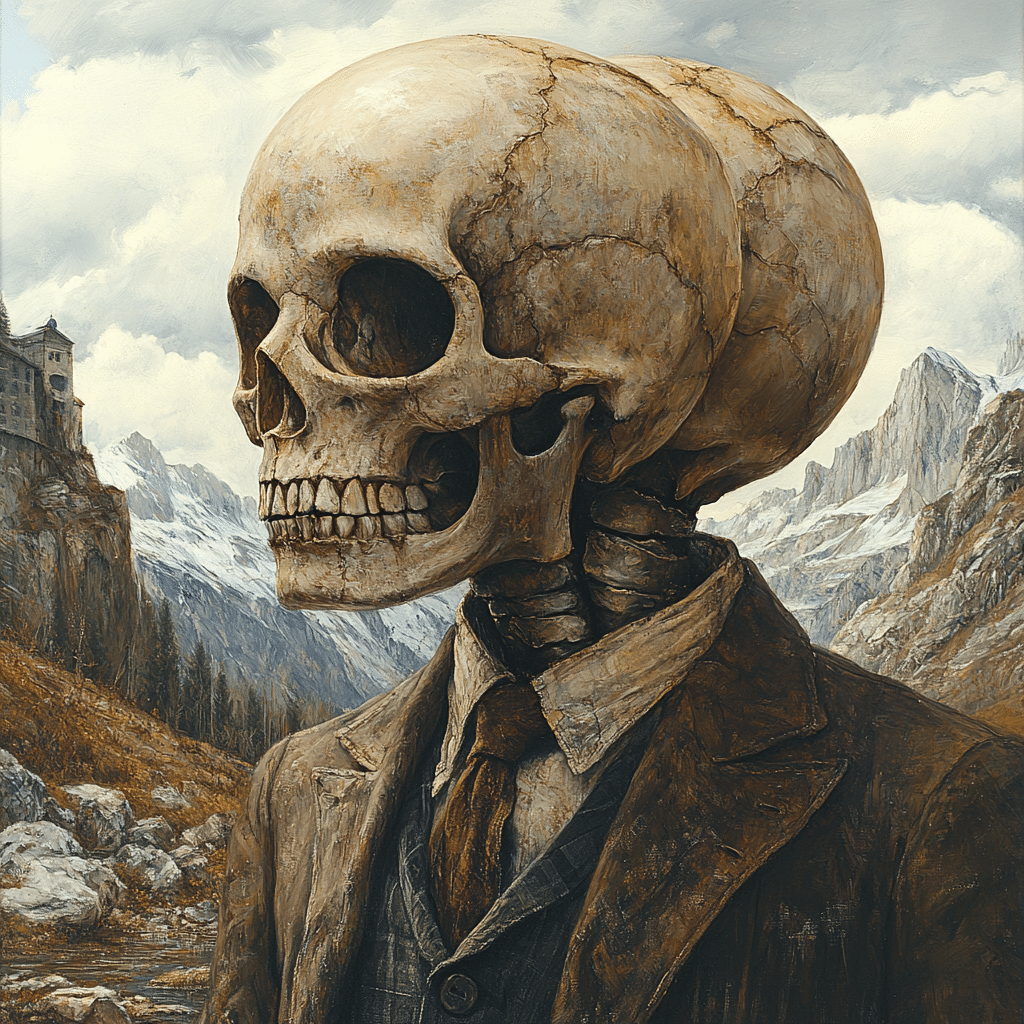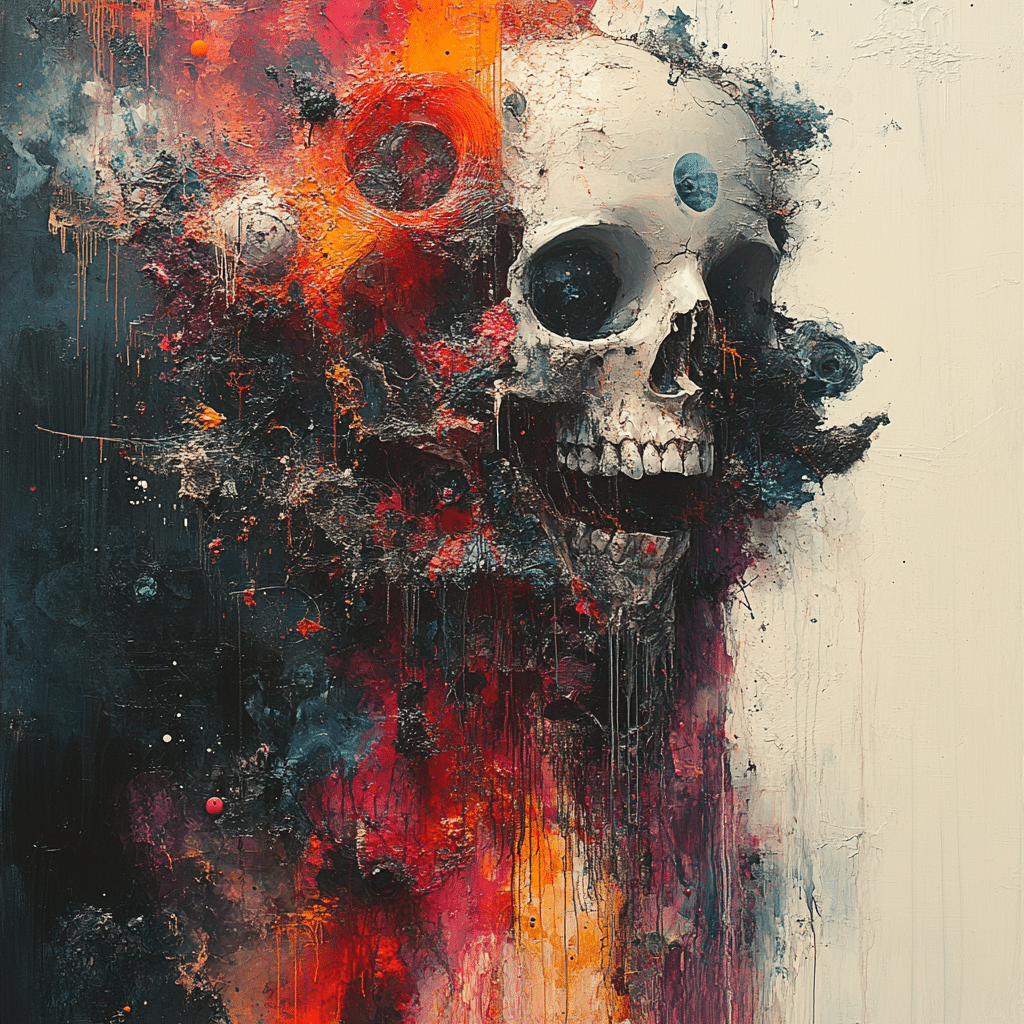
Shou Tucker The Tragic Fate Of A Alchemist And Father

1. Shou Tucker’s Descent: A Complex Character Study
Shou Tucker, a dark figure from the popular anime and manga series “Fullmetal Alchemist,” presents a compelling and controversial case study in character development. His narrative unfolds as a haunting exploration of sacrifice, ambition, and the moral boundaries uniquely intertwined with parental love. When we first meet Shou Tucker, he’s this celebrated state alchemist, praised for his groundbreaking ability to create living beings through alchemical transmutation. Yet, by the end of his arc, he evolves from a respected scientist to a symbol of tragic failure.
Shou Tucker’s descent is profoundly shaped by his tumultuous relationships and the heavy burdens placed upon him by society. After losing his wife, Tucker’s already fragile mental state fractures further, pushing him into a relentless quest for achievement. His ambition transforms into a monstrous fixation, ultimately leading him down a deadly path. Dissecting Tucker’s complex persona shines a light on the delicate balance between aspiration and humanity, reminding us how easily one can lose their way.

2. The Seven Stages of Shou Tucker’s Downfall
Examining Shou Tucker’s tragic narrative reveals seven pivotal stages that culminate in his heartbreaking demise. Each phase weaves a rich tapestry of his life, illustrating how they collectively dismantle the man he once was.
1. Early Genius and Recognition
Initially, Shou Tucker rises to prominence within the alchemical community, achieving fame for creating the first successful chimera—a living entity formed by mixing species. His accolades set a high bar, igniting a fierce drive for further success that becomes increasingly obsessive.
2. The Pressure of Expectations
As accolades pour in, the pressure builds. Tucker’s desperation grows alongside society’s expectations, pushing him away from genuine research into dubious experiments. Instead of seeking true knowledge, he resorts to moral compromises for advancement in his career.
3. Grief and Isolation
The death of his wife plunges Tucker into a deep pit of grief and isolation. As loneliness permeates his existence, he clings tighter to his ambition, believing it to be the sole reason for his being. This emotional isolation ultimately leads him to disastrous decisions in his pursuit of recognition.
4. The Ethical Crossroads
Tucker stands at a horrifying moral crossroads when he chooses to transmute his young daughter, Nina, alongside their beloved dog, Alexander. This shocking act emphasizes the depths of his desperation, signifying the complete erasure of his humanity in exchange for the hollow pursuit of acclaim.
5. The Fall from Grace
The fallout from Tucker’s twisted experiment elicits immediate revulsion from society. His previous status as a revered scientist crumbles, leaving him a pariah in a world that once admired him. The horrific nature of his actions seals his fate and propels him toward inevitable disaster.
6. Descent into Madness
In the wake of his actions, Shou Tucker spirals into madness. The once-brilliant alchemist is now fractured, lost in a cruel reality devoid of family. This mental collapse is a stark reminder of the costs associated with unchecked ambition and moral decay.
7. A Legacy of Horror
Ultimately, Tucker’s chilling end serves as a poignant warning about the lack of ethical boundaries in the pursuit of knowledge. While his story is a tragic one, it leaves a lingering echo regarding morality, sacrifice, and the tragic beauty of human existence.
3. Shou Tucker: A Reflection of Real-World Consequences
Shou Tucker’s narrative resonates far beyond his fictional universe, serving as a mirror reflecting real-world dilemmas surrounding scientific ethics and parental responsibilities. In modern discourse, individuals like Trai Byers and Julia Hsu evoke similar themes of ambition weighed against moral obligations. Both figures navigate their own successes in the entertainment industry while grappled with the consequences of their choices.
Similarly, filmmakers like Shuya Sophia Cai highlight ethical dilemmas reminiscent of Tucker’s tragic story. Her documentaries consistently probe the delicate intersections of science and humanity, prompting viewers to reflect on the heavier costs of ambition. This portrayal encourages audiences to challenge their understanding of morality, much like Shou Tucker’s tale does.
Final Thoughts on Shou Tucker’s Legacy
The fate of Shou Tucker stands as a powerful narrative delving into the themes of ambition, ethical boundaries, and parental love gone awry. His tragic story serves as a forceful reminder of the consequences that arise from moral failures, clearly illustrating the importance of compassion and integrity.
As conversations surrounding figures like Shou Tucker continue, we must reflect: how far will we go in pursuit of success? What will we sacrifice, and how does that impact our moral compass? Ultimately, Shou Tucker’s legacy compels us to navigate our paths with care, urging us to balance ambition with ethical responsibility. His story lingers on, echoing in the minds of viewers and reminding us of the thin line between aspiration and humanity.
Shou Tucker: The Tragic Fate Of An Alchemist And Father
Shou Tucker, often remembered for his harrowing storyline in Fullmetal Alchemist, has become a symbol of the moral costs of ambition. Interestingly, his character serves to illustrate a broader theme often found in storytelling: the thin line between genius and madness. Did you know that Tucker’s infamous transformation of his daughter into a chimera highlights the anime’s critique of parental sacrifice? This kind of theme can resonate with many viewers, especially as it taps into relatable dilemmas faced by real parents, reminding us that good intentions can spiral into the most dreadful outcomes.
Now, switching gears a bit, fans of both indie films and anime have found common ground in unexpected ways. Take, for instance, actress Chipo Chung, known for her diverse roles—like the nuanced characters we see in the Fullmetal Alchemist series. Chung brings a depth that mirrors the emotional complexities of characters like Shou Tucker, who ironically began as a prestigious researcher. For those passionate about storytelling, learning about different perspectives can enrich an understanding of how we build narratives in both cinema and animation.
Speaking of storytelling, there’s an abundance of talent emerging in the film industry. One shining star is Angela Alvarez, an artist whose authenticity captures audiences in a way reminiscent of the raw emotions depicted in anime. Just like Alvarez, Shou Tucker’s tragic arc evokes an emotional response that serves as a stark reminder of the heights and depths of human aspiration. The contrasting worlds, such as those of urban development and artistic exploration—reflected in places like Llandysul, an idyllic Welsh village—serve to diversify the kinds of landscapes we appreciate in entertainment today. If you’re curious about more cultural insights, exploring the top 10 Largest Cities in The United states Of America can provide context to the diverse environments that shape various stories.
In closing, Tucker’s narrative elicits strong reactions, urging viewers to ponder ethical boundaries. Learning about such characters enhances one’s appreciation of storytelling, as seen in emerging works like Dr. Stone Season 4. They encourage audiences to reflect on their own moral compass. In the end, the tragedies faced by characters like Shou Tucker can inspire meaningful conversations about the choices we make—both fictional and real—which can lead to exciting discussions about societal issues.










